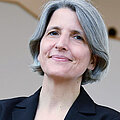Agenda 2030, goal 16: foundations started to contribute on sustainable development
The United Nations’ 2030 Agenda describes in its vision that sustainable development requires democracy, good governance and the rule of law. All over the world, this goal is being actively pursued, including by foundations.
“Promote peaceful and inclusive societies for sustainable development, provide access to justice for all and build effective, accountable and inclusive institutions at all levels.” With this wording, the 2030 Agenda expresses the intention to bring about an advantageous political and constitutional environment. This demand is made even clearer in the individual sub-objectives, where it is clear that the goal is specifically concerned with the reduction of all forms of violence, the promotion of the rule of law, and the reduction of crime and corruption, and with inclusive forms of decision-making and the protection of fundamental freedoms. In addition, the 2030 Agenda explicitly mentions that the individual goals are interdependent and that the desired sustainable development can only be achieved if all the goals are implemented with the appropriate attention. In other words, without the implementation of Goal 16, there will be no sustainable development.
| “Foundations can be a corrective if democratic mechanisms fail or relevant perspectives are lacking. The contribution of foundations is less spectacular. In their daily work, they incorporate social needs where the state or the market cannot (yet) do so. They thus contribute to social peace and cohesion. The broader and more diverse the foundation sector, the more successful it will be; so anyone who wants a democracy in which citizens take personal responsibility, in which the civil sector organises itself independently and in which state and politics are ultimately there to serve the people does not need to fear foundations. On the contrary, foundations necessary actors within a democracy, as are political parties, the media and groups of regulars.” Dr Lukas von Orelli, Managing Director of the Swiss Velux Stiftung and President of SwissFoundations, the umbrella organisation of Swiss grant-making foundations. |
Foundations all over the world have started to contribute in different ways to achieving this goal. The programme of German Foundation Day 2019 impressively demonstrates the commitment with which foundations promote and strengthen democracy in Germany, in Europe and on a global level.
Global commitment begins in one’s own country
In America, too, foundations support democracy in various different ways. Since 2013, for example, the US Foundation Center has had an online portal, the Foundation Funding for US Democracy, which highlights the role foundations play in promoting democracy. Among other things, they support journalism, analysis of the significance of fake news for democracy, and work on the rights of immigrants. All in all, the role of philanthropy – and in particular the so-called big-bet philanthropy, i.e. donating large sums of money while at the same time accepting higher risks – is also seen in the USA as very critical for democracy, as the books by the political scientists Rob Reich and David Callahan, as well as the journalist Anand Giridharadas, show. The South African Democracy Works Foundation is an impressive example of the work by foundations to promote democracy in Africa. It works in a variety of ways to strengthen democracy in Africa and offers, among other things, lectures and opportunities for dialogue.
| The Goal 16 of the 2030 Agenda for Sustainable Development „Promote peaceful and inclusive societies for sustainable development, provide access to justice for all and build effective, accountable and inclusive institutions at all levels“. Source: Transforming our world: the 2030 Agenda for Sustainable Development | |
| Sub-goals 16.1 Significantly reduce all forms of violence and related death rates everywhere 16.2 End abuse, exploitation, trafficking and all forms of violence against and torture of children 16.3 Promote the rule of law at the national and international levels and ensure equal access to justice for all 16.4 By 2030, significantly reduce illicit financial and arms flows, strengthen the recovery and return of stolen assets and combat all forms of organized crime 16.5 Substantially reduce corruption and bribery in all their forms 16.6 Develop effective, accountable and transparent institutions at all levels 16.7 Ensure responsive, inclusive, participatory and representative decision- making at all levels 16.8 Broaden and strengthen the participation of developing countries in the institutions of global governance 16.9 By 2030, provide legal identity for all, including birth registration 16.10 Ensure public access to information and protect fundamental freedoms, in accordance with national legislation and international agreements | What is required 16.a Strengthen relevant national institutions, including through international cooperation, for building capacity at all levels, in particular in developing countries, to prevent violence and combat terrorism and crime 16.b Promote and enforce non-discriminatory laws and policies for sustainable development |
Looking at Goal 16, with its detailed sub-objectives, it quickly becomes clear that foundations can contribute to sustainable development in all countries. This also includes an important field of work that has so far hardly been discussed among foundations: illegal financial and arms flows, corruption and bribery. If these are to be reduced, it will require intensive commitment, especially in Western countries. German foundations can therefore strengthen their work on global sustainable development by working on corruption from within Germany. This is most likely to succeed if, for example, studies and public relations work make it clear the influence the supply chains of Western companies have on human rights, or how money laundering and illegal financial flows arise. This requires dialogue and new cooperation with companies and financial institutions. In the events relating to philanthropy in Africa organised by the Association of German Foundations in recent months, African foundations and actors have repeatedly asked that these issues be addressed from Germany and in Germany.
Dialogue across sectors
Goal 16 of the 2030 Agenda makes it clear how necessary it is to cooperate with all stakeholders in the relevant fields. German development cooperation, for example, has launched comprehensive programmes on democracy: the Federal Ministry for Economic Cooperation and Development (BMZ) regards good governance as fundamental to sustainable development and is pursuing a comprehensive approach aimed at involving the entire population and taking minorities into account. In many countries, the BMZ supports areas such as good governance, human rights, participation, e-governance, freedom of expression and good financial governance. To this end, die Deutsche Gesellschaft für Internationale Entwicklung (GIZ) GmbH has set up a Governance Sector Programme to advise the BMZ and implement projects.
| “Anti-democratic, right-wing authoritarian discourse thrives on constant talk of crisis. Foundations must oppose this crisis discourse, deprive it of its legitimacy and not tune into it themselves, but rather make future-promoting arguments strong.” Dr Ellen Ueberschär, member of the board of the Heinrich Böll Stiftung and, among other things, responsible for the Foundation’s domestic work. |
If different actors work together, democracy – and Goal 16 of the 2030 Agenda – will be supported even more effectively. Foundations have a very special role to play here, as they act independently and are able to test innovative approaches. Contact us if you would like us to help you find cooperation partners from other sectors!

EZ-Scout Dr. Annette Kleinbrod
All articles of EZ-Scout Dr. Annette KleinbrodRelated Content
The reform of foundation law is coming
The bill to standardize foundation law will enter into force on 1 July 2023. The legislator has addressed important demands made by the Association of German Foundations and by academia, paving the way for improvements for small and large foundations alike.
Reflecting on 25 years of progress for gender equality – and how far there is to go
Twenty-five years ago, the World Conference on Women in Beijing adopted a Platform for Action that transformed national and international policies almost all over the world, recognizing that women’s rights are human rights. It impacted not millions, but billions of people.
“The SDGs are a powerful common language”
Benjamin Bellegy, Executive Director at the Worldwide Initiatives for Grantmaker Support (WINGS), on his new plans for the global SDG Philanthropy Platform (SDGPP).

